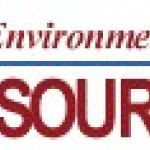- Industry: Government
- Number of terms: 3992
- Number of blossaries: 2
- Company Profile:
A substance that can increase or decrease the rate of a chemical reaction between the other chemical species without being consumed in the process.
Industry:Pollution control
A substance that brings about oxidation in other substances. Oxidizing agents (oxidants) contain atoms that have suffered electron loss. In oxidizing other substances, these atoms gain electrons. Ozone, which is a primary component of smog, is an example of an oxidant.
Industry:Pollution control
A subset of air basin, the term denotes a geographical area that shares the same air because of topography, meteorology, and climate.
Industry:Pollution control
A state government agency established in 1991 for unifying environmental activities related to public health protection in the State of California. There are six boards, departments, and offices under the organization of Cal/EPA including the California Air Resources Board (ARB), California Integrated Waste Management Board (IWMB), State Water Resources Control Board (SWRCB) and its nine Regional Water Quality Control Boards (RWQCB), Department of Pesticide Regulation (DPR), Department of Toxic Substances Control (DTSC), and Office of Environmental Health Hazard Assessment (OEHHA). To see links to these Cal/EPA organizations, go to the bottom of this webpage or any webpage on this website. The Cal/EPA boards, departments, and offices are directly responsible for implementing California environmental laws, or play a cooperative role with other regulatory agencies at regional, local, state, and federal levels. Please visit Cal/EPA's home page.
Industry:Pollution control
A subcategory of the nonattainment designation category for state standards that signals progress and implies the area is nearing attainment. Districts with nonattainment-transitional status may revise their attainment plans to delay adoption of control measures anticipating attainment without the measures.
Industry:Pollution control
A strong smelling, pale blue, reactive toxic chemical gas consisting of three oxygen atoms. It is a product of the photochemical process involving the sun's energy and ozone precursors, such as hydrocarbons and oxides of nitrogen. Ozone exists in the upper atmosphere ozone layer (stratospheric ozone) as well as at the Earth's surface in the troposphere (ozone). Ozone in the troposphere causes numerous adverse health effects and is a criteria air pollutant. It is a major component of smog.
Industry:Pollution control
(SO<sub>2</sub>) A strong smelling, colorless gas that is formed by the combustion of fossil fuels. Power plants, which may use coal or oil high in sulfur content, can be major sources of SO<sub>2</sub>. SO<sub>2</sub> and other sulfur oxides contribute to the problem of acid deposition. SO<sub>2</sub> is a criteria air pollutant.
Industry:Pollution control
A stationary facility that emits a regulated pollutant in an amount exceeding the threshold level depending on the location of the facility and attainment with regard to air quality status. (See Source. )
Industry:Pollution control
A state-mandated program (California Government Code Section 65089a) that requires each county to prepare a plan to relieve congestion and reduce air pollution.
Industry:Pollution control
A set of mathematical equations that predict the emissions likely to occur from the combustion of a given formulation of gasoline. For more information, please go to our predictive model website area.
Industry:Pollution control
